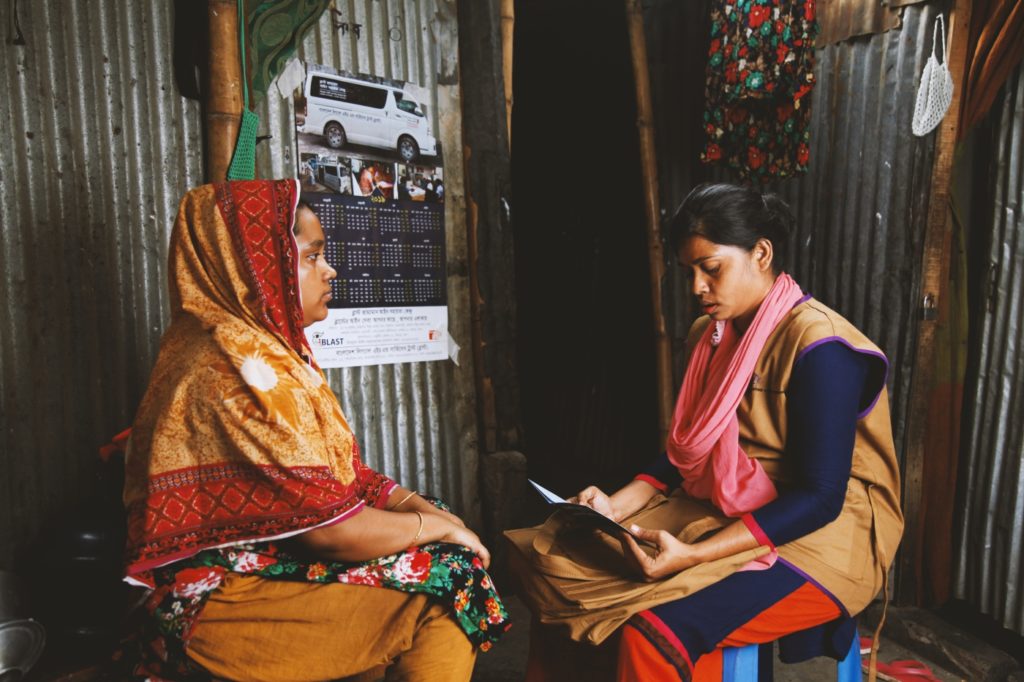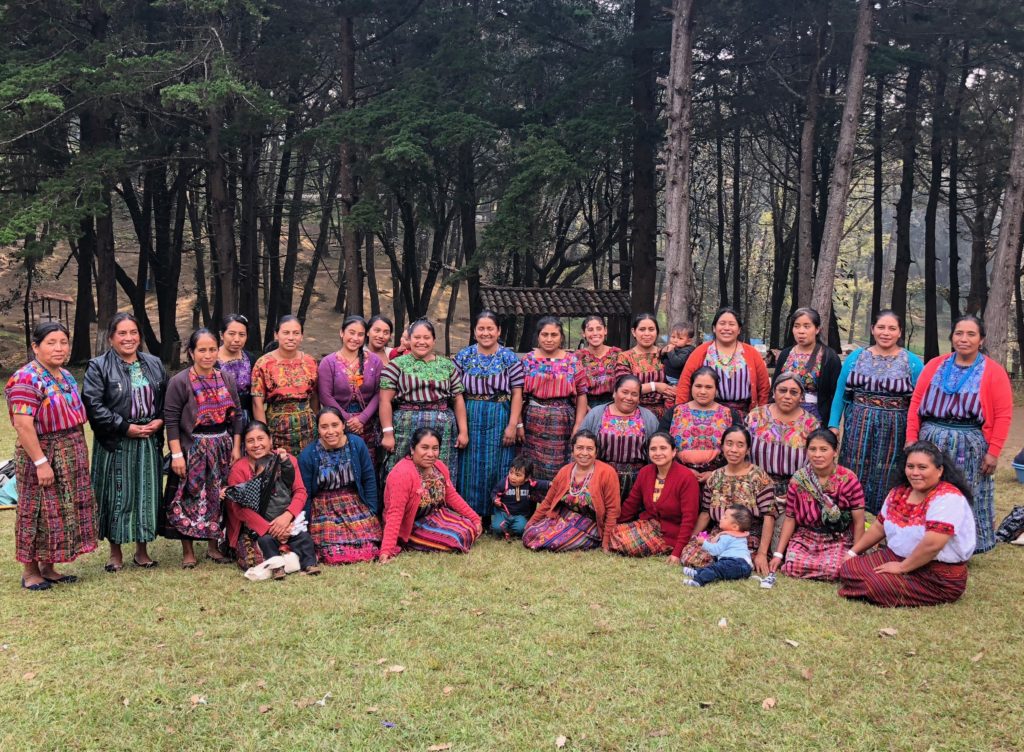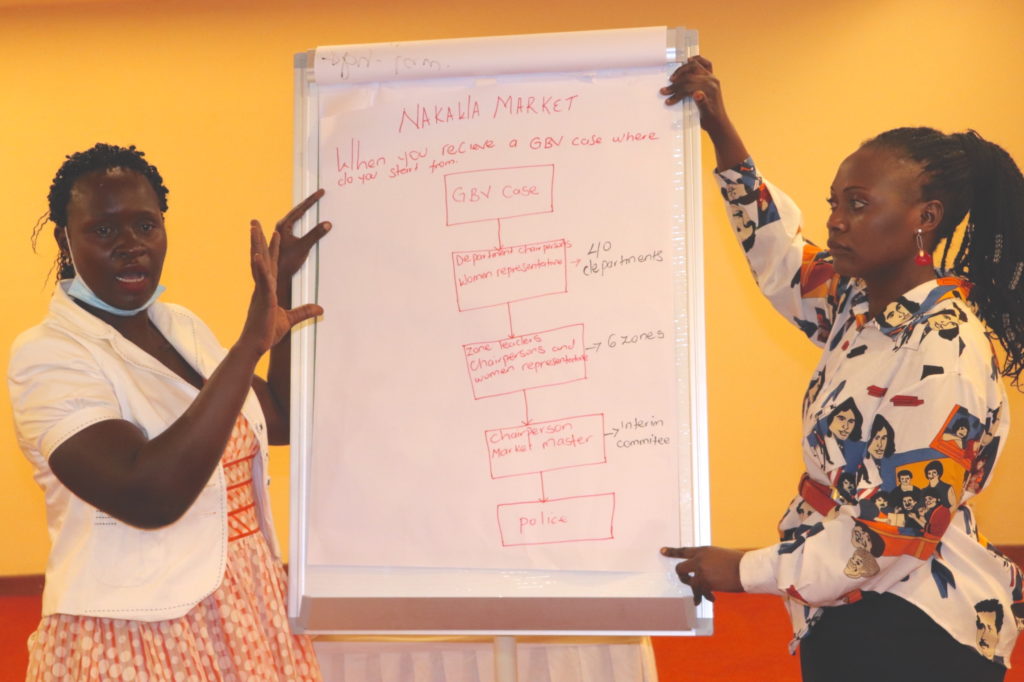Namati Mailers
Gender justice trailblazers from across the world
Dear Friend,
The law can be a powerful tool for advancing gender justice. When women and girls are equipped to know, use, and shape the laws that affect them, they can make crucial progress in dismantling structural barriers to equality.
The Legal Empowerment Network has hundreds of member organizations working toward gender justice. To commemorate International Women’s Day, we share inspiring initiatives by three of them.
Bangladesh Legal Aid and Services Trust (BLAST)
BLAST tackles systemic discrimination in the most marginalized communities. The garment industry, for example, employs over 4 million people in the country – mostly women – but has few mechanisms to protect their rights. BLAST mobilizes workers to form “self-help groups” that take up cases of labor rights violations, with a special focus on the experiences of women workers. The organization has also rolled out a mobile app called Sromik Jigyasha (Workers’ Queries), which conveys vital information on labor rights and connects workers to paralegals and lawyers who provide legal advice.

A BLAST paralegal conducts a mediation follow-up at a female client’s residence
Women’s Justice Initiative (WJI)
WJI seeks to end gender inequality and gender-based violence in Indigenous and rural communities in Guatemala. They offer rights education, leadership training, and legal services for adolescent girls and women in Kaqchikel, the local Mayan language. Dozens of graduates of these programs have gone on to become local leaders and grassroots legal advocates for their communities. WJI now coaches organizations in Mexico, Guatemala, and Honduras on the use of legal empowerment approaches to advancing gender equality.

Community advocates from Women’s Justice Initiative, Guatemala at a group retreat. (Photo credit: Women’s Justice Initiative)
Uganda Association of Women Lawyers (FIDA Uganda)
FIDA Uganda trains community members as paralegals who take on gender justice cases and address structural barriers to gender equality. In a recent initiative, women paralegals in six markets across Kampala city resolved to eliminate violence and harassment from their work environment. They held meetings with market leadership, calling attention to the under-reporting of cases and the absence of redress mechanisms. Their demands provide the basis for policy recommendations that FIDA Uganda is submitting to the Kampala Capital City Authority, for an upcoming ordinance on gender-based violence in city marketplaces.

FIDA Uganda trains paralegals on gender-based violence in marketplaces. (Credit: FIDA Uganda)
There is much we can learn from these three dynamo Network members, and the nearly one thousand others working to realize gender equity across the globe. In 2022, our Network is exploring what we can do together to spark collective learning and action at the intersection of gender and legal empowerment. Help set the agenda: take this short survey by March 11, 2022.
We are honored to walk with BLAST, WJI, FIDA Uganda and all of you to ensure women and girls everywhere can exercise their rights.
In solidarity,
Aakriti, Akhila, Abby, and the rest of the team supporting the Legal Empowerment Network
P.S. The upcoming convening of the Commission on Status of Women will focus on gender equality and climate change. Here’s a roundup of sessions touching on justice. Join our debrief event on March 29, 2022 to discuss the role of legal empowerment in addressing this important intersection of issues.
